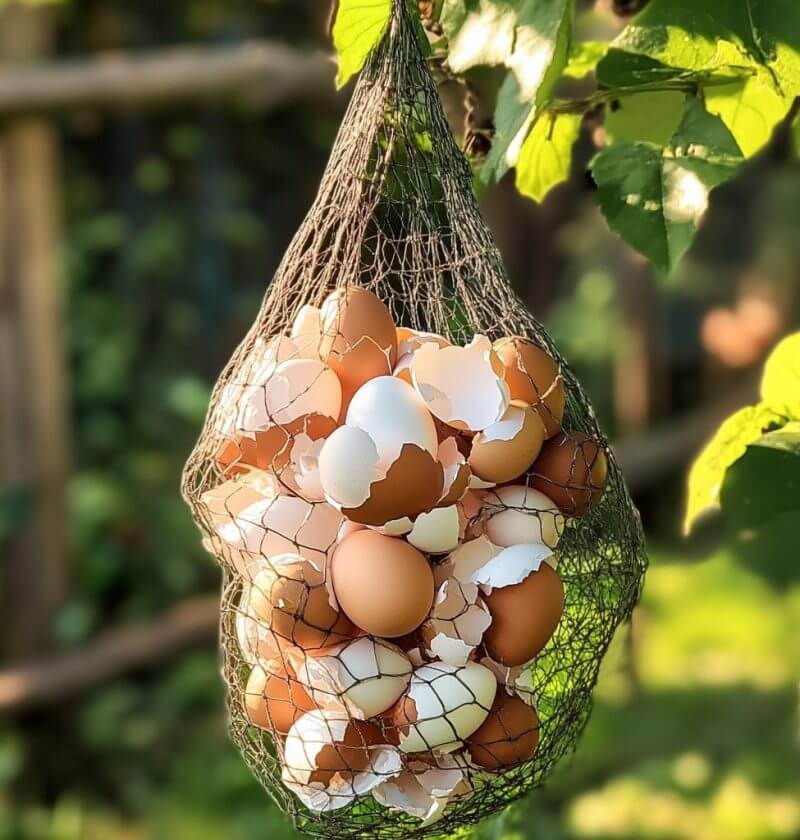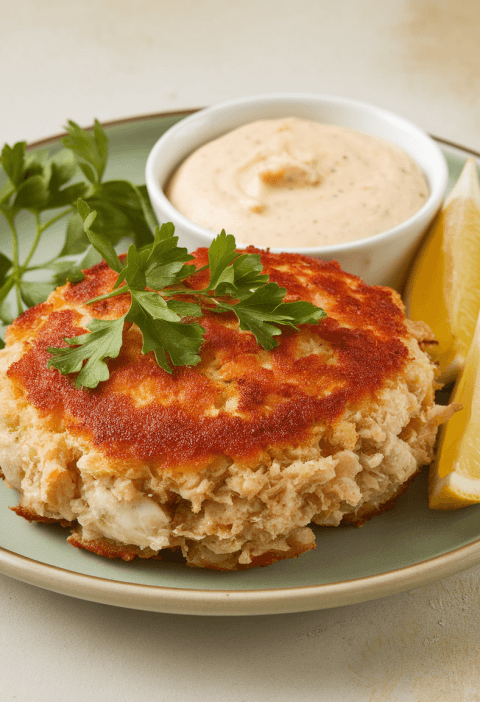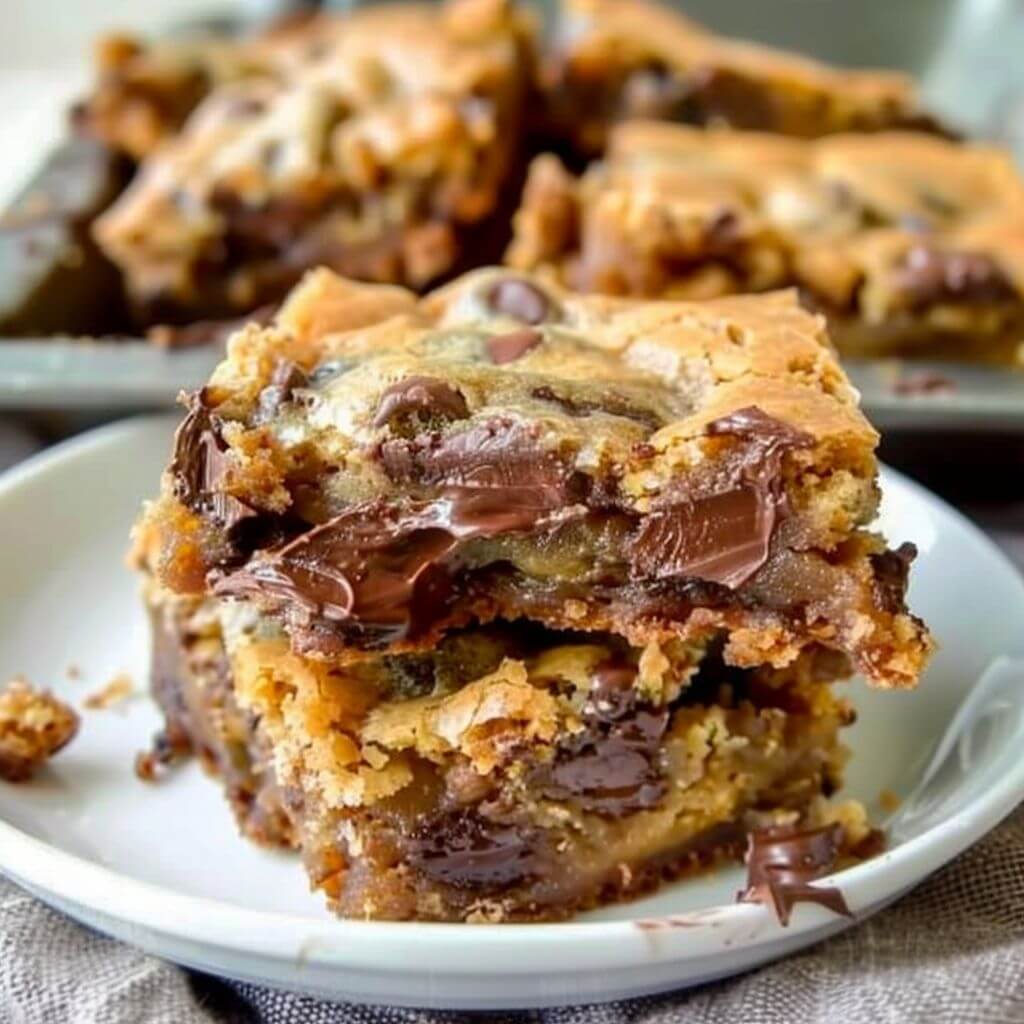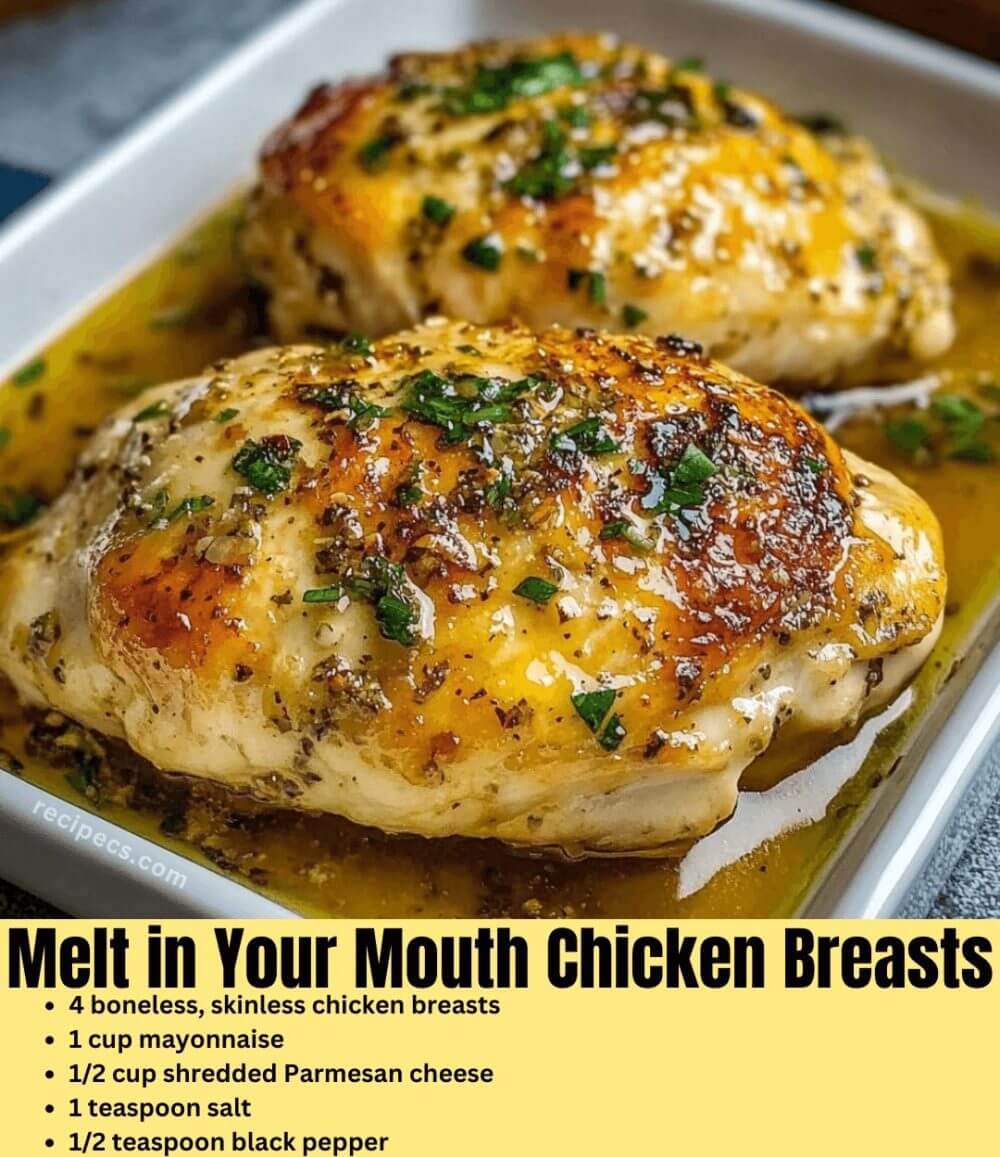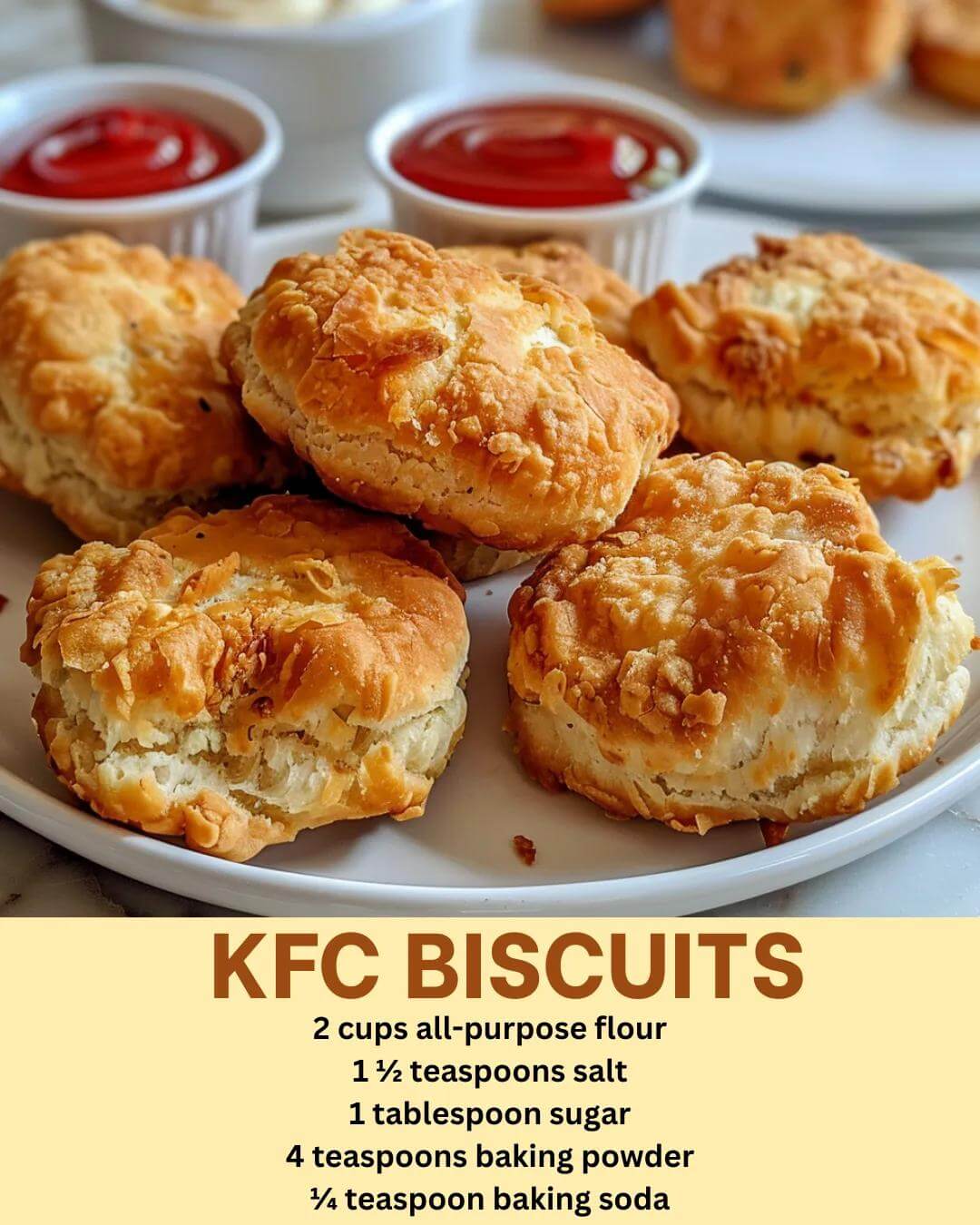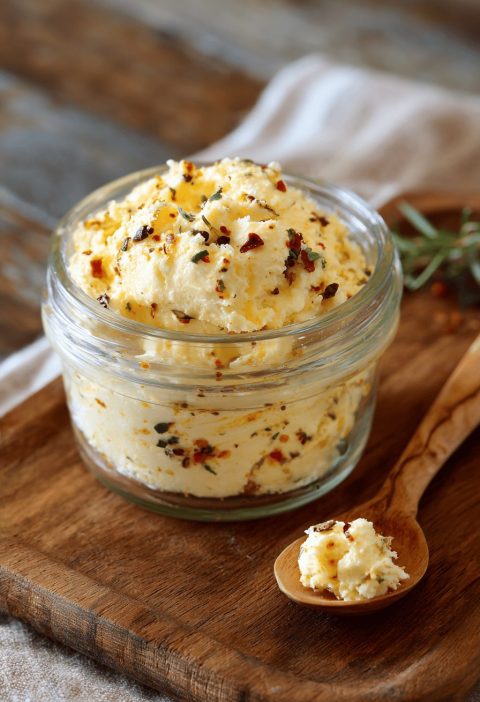Would you like to save this?
Looking for an easy, eco-friendly way to improve your garden’s health? The answer might be as simple as reusing something you’d normally throw away: eggshells. Hanging a mesh bag of eggshells in your garden can provide a surprising array of benefits, making it a must-try trick for gardeners seeking to adopt sustainable practices. Whether you’re a seasoned pro or a beginner, this tiny hack can give your plants a boost without the need for chemicals. Intrigued? Read on to discover the reasons why this clever technique is worth trying.
The Benefits of Hanging Eggshells in Your Garden
From enriching your soil to keeping pests at bay, eggshells are an inexpensive, natural solution that can significantly improve your garden’s health and productivity. Here’s a closer look at how hanging a mesh bag of eggshells can transform your gardening game.
1. Nutrient Enrichment for Stronger Plants
Eggshells are a fantastic natural source of calcium, an essential nutrient that promotes strong plant cell walls. As the eggshells break down, they release calcium into the soil, helping to fortify plant stems and leaves. This gradual release of nutrients means that your plants receive a steady supply of calcium over time, leading to sturdier growth and a more abundant harvest. Think of it as giving your garden a slow-release fertilizer without any of the chemicals.
2. A Natural Pest Deterrent
Pests like slugs and snails can wreak havoc on your garden, especially if you’re trying to avoid chemical pesticides. That’s where eggshells come in. Crushed eggshells have sharp, jagged edges that make it difficult for soft-bodied pests to cross. Simply spread some crushed eggshells around the base of your plants or let them fall naturally from the hanging bag, and you’ll create a barrier that deters these unwanted visitors. It’s a safe, non-toxic way to keep pests at bay, ensuring your plants thrive without the need for harmful sprays.
3. Boost Your Compost’s Nutrient Profile
Eggshells aren’t just beneficial directly in the garden; they’re also a great addition to your compost pile. Calcium is crucial for the microbial activity that breaks down organic matter, and eggshells provide an extra boost. By adding crushed eggshells to your compost, you’ll speed up decomposition and enhance the overall quality of your compost. The result? Richer compost that feeds your plants more effectively, giving them everything they need to grow strong and healthy.
4. Balance Soil pH Naturally
If your garden’s soil is too acidic, you may notice that certain plants struggle to thrive. Eggshells contain calcium carbonate, which is a natural pH balancer. When they break down, the calcium carbonate helps to neutralize acidic soil, making it more alkaline. This adjustment is particularly beneficial for plants that prefer a neutral or slightly alkaline environment, such as many vegetables and flowers. With eggshells, you can make this change gradually without overdoing it, ensuring that your soil stays just right for your plants.
5. Reduce Waste and Embrace Sustainability
One of the best reasons to use eggshells in your garden is that it allows you to repurpose kitchen waste that would otherwise end up in a landfill. By giving those eggshells a second life in your garden, you’re contributing to a more sustainable lifestyle. This small habit can make a big difference over time, helping you reduce waste and create a more eco-friendly gardening routine. Plus, it’s a great feeling to know that even your kitchen scraps are working to benefit your garden.
6. Attract Beneficial Birds
Birds play a crucial role in any healthy garden ecosystem, helping with pest control by eating insects like aphids and caterpillars. Birds are naturally attracted to eggshells, especially during nesting season when they need extra calcium for their eggs. By hanging a mesh bag of eggshells, you create a simple way to draw more birds into your garden. The result? A natural pest management system that keeps harmful insects in check, while adding a touch of wildlife to your outdoor space.
7. A Visual Reminder to Tend to Your Garden
Sometimes, a simple reminder can make all the difference in maintaining your garden. A mesh bag of eggshells hanging in your garden acts as a visual cue to check in on your plants regularly. When you see the bag, you’ll be reminded to water, prune, and inspect your plants for any issues. This small habit can encourage a more consistent gardening routine, leading to healthier plants and a more vibrant garden overall.
8. Enhance Microbial Activity for Healthier Soil
Eggshells don’t just benefit plants directly; they also contribute to the microbial health of your soil. As they decompose, eggshells provide minerals that encourage the growth of beneficial microbes. These microbes help break down organic matter, creating rich, fertile soil that promotes strong plant roots. It’s a simple way to foster a healthy underground ecosystem that supports plant growth from the ground up.
How to Hang a Mesh Bag of Eggshells in Your Garden
Ready to give this sustainable gardening hack a try? It’s easy! Here’s how you can put those eggshells to work in your garden:
- Collect Your Eggshells: After using eggs in your cooking, rinse the shells to remove any residue and allow them to dry. This helps to prevent any odors or mold.
- Crush Lightly: Lightly crush the dried eggshells using a rolling pin or the bottom of a glass. You don’t need to pulverize them—small pieces work best.
- Place in a Mesh Bag: Add the crushed eggshells to a small mesh bag, such as a reusable produce bag or an old onion sack. The mesh allows air to circulate, helping the eggshells to dry out further and break down over time.
- Hang in Your Garden: Choose a spot where you’d like to boost calcium levels or deter pests, and hang the mesh bag from a stake, trellis, or low tree branch. The eggshells will gradually fall out of the bag, providing nutrients directly to the soil.
FAQs About Using Eggshells in the Garden
1. How long does it take for eggshells to break down in the garden?
Eggshells take a few months to fully break down, especially if they are larger pieces. Crushing them helps speed up this process, allowing the calcium to become available to your plants sooner.
2. Can I put eggshells directly in the soil?
Yes! If you don’t want to use a mesh bag, you can mix crushed eggshells directly into the soil around your plants. Just be sure to crush them well so they decompose more quickly.
3. Are eggshells safe for all plants?
Most plants will benefit from the calcium in eggshells, but they are especially useful for tomatoes, peppers, and other vegetables prone to blossom end rot, a condition caused by calcium deficiency.
4. Will eggshells attract pests to my garden?
Eggshells are more likely to deter pests than attract them. The sharp edges help keep soft-bodied pests like slugs away, while birds that feed on eggshells can help control insect populations.
5. How many eggshells should I use?
There’s no exact number, but aim to spread a light layer of crushed eggshells around your garden or fill a small mesh bag. Even a handful can make a difference in providing extra calcium to your plants.
Try the Eggshell Trick and Watch Your Garden Thrive!
Incorporating eggshells into your gardening routine is a simple, sustainable way to boost plant health and keep pests at bay. By hanging a mesh bag of eggshells in your garden, you can unlock a range of benefits that support both your plants and the environment. Give it a try, and you might just find that this little trick makes a big impact on your garden’s success. Happy gardening!

